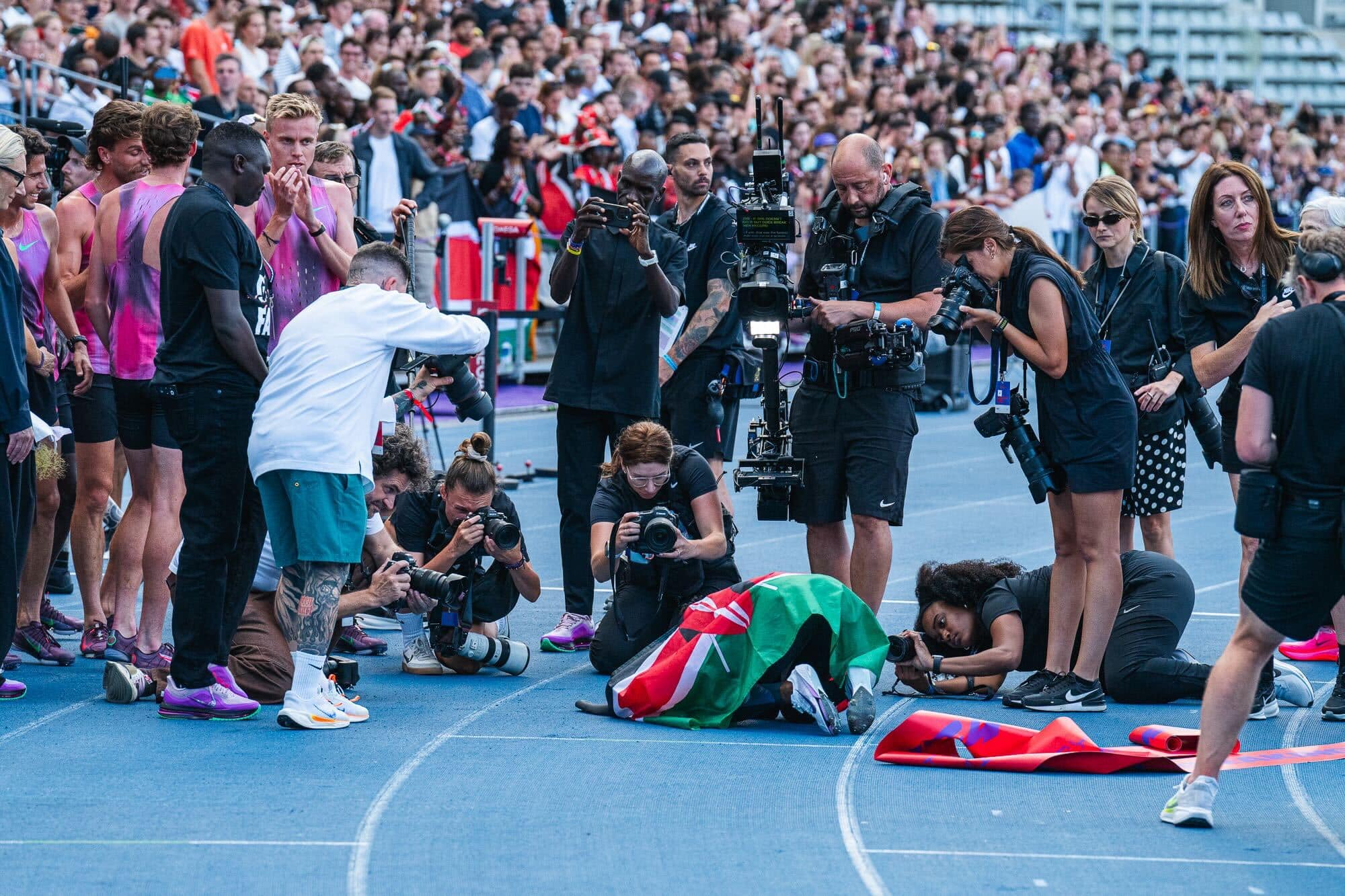One of the earliest surprises of the 2024 women’s Olympic marathon occurred when U.S. Olympic Marathon Trials champion Fiona O’Keeffe withdrew from the race just minutes after it began on Sunday morning. O’Keeffe, 26, stepped off the course before reaching the 5K mark, bringing her much-anticipated Olympic debut to an abrupt end.
O’Keeffe, who was hailed as a rising star after winning the U.S. Olympic Marathon Trials in February following a record-setting performance, started the race at the back of the pack and quickly fell behind. According to NBC commentator Kara Goucher, O’Keeffe’s early struggles were noticeable as she appeared to be dealing with an injury.
Her coach, Alistar Cragg, later confirmed that O’Keeffe had been dealing with “hip flexor tightness” for about a week, though the exact nature of the injury remains unclear.
In the days leading up to the race, Jess McClain, the fourth-place finisher at the U.S. Olympic Marathon Trials and Olympic team alternate, was contacted by Team USA officials and informed that she might need to step in for one of the team members.
McClain then booked a last-minute flight to Paris on August 7, prepared to race if necessary. However, shortly after arriving, she was informed that she would likely not be required to compete.

To Start? Or Not To Start?
O’Keeffe’s decision to start the Olympic marathon, despite being unfit to finish, has sparked controversy in the running community, raising questions about the fairness and ethics of such a move. The controversy pertains mainly to whether it was appropriate for her to start the race, knowing she might not be able to complete it, particularly when an alternate, Jess McClain, was in Paris, ready to step in.
One key point that has been brought up is the potential motivation behind O’Keeffe’s decision.

Some speculate that by starting the race, she ensured that she could officially call herself an Olympian, a title that carries significant prestige and can influence future sponsorships and career opportunities.
In professional running, performance bonuses and sponsorship deals often hinge on an athlete’s status as an Olympian. She may have already had bonuses in place with her current sponsors and was contractually obligated to start the race to earn that money, making the decision to start the race, even when injured, potentially financially motivated.
Those against the decision have argued that if O’Keeffe knew she was unlikely to finish, she should have handed over her spot to McClain, who had flown to Paris on short notice in case she was needed. From this perspective, the decision to start the race might be seen as selfish, prioritizing personal recognition over the team’s best interests and the spirit of competition.

However, supporters of O’Keeffe have said that it was her spot to use as she saw fit.
As the Trials champion, O’Keeffe earned her place on the Olympic team through her performance, and the decision to start or not was hers alone. They have also argued that, given the uncertainty surrounding her injury, she had every right to see how her body would respond on race day.
Another important aspect to consider is whether or not the decision was solely O’Keeffe’s to make or whether there were other influences or authorities swaying her one way or another. Although it’s unlikely we’ll ever know the full truth, we can’t rule out the influence or potential pressure from coaches, family, friends or even USATF for O’Keeffe to get on the start line today.

Far From An Isolated Incident
Historically, this is not an isolated incident.
The example of Des Linden, who started the London 2012 Olympic marathon despite a stress fracture of the femur, is one that comes to mind. Linden dropped out early but later framed the experience as an important learning moment for her eventual success in future events.
Such decisions can be seen as a calculated risk, one that sometimes pays off, but other times, as in O’Keeffe’s case, leads to early withdrawal.
O’Keeffe isn’t the only athlete to have been the center of controversy regarding their start in the 2024 Olympic marathon.
Sinead Diver, the Australian national record-holder, withdrew from the Olympic marathon less than five minutes into the race. Just past the 1K mark on the course, Diver was seen hunched over the barriers. Medical staff quickly came to her attention, assessed her, and helped her back to the start line.

Team Australia released a statement detailing what happened to Diver. “Sinead Diver withdrew from the marathon after experiencing bilateral cramping in both quadriceps at Paris 2024,” the statement reads. “She is devastated and being supported by team officials and medical staff. Despite managing Plantar fasciitis at times this year, there was no physical reason for Sinead to not compete today.”
However, Olympian, sports marketer, and commentator David Culber hinted that that may not be the full story, “We’ll take it on face value,” he said on Nine. “There’s a lot of information to suggest there’s another story, and the truth is probably somewhere in the middle.”
“You can’t take someone’s spot to run a kilometer. I’m sorry,” he added.
Ultimately, the debate boils down to whether O’Keeffe’s (or Diver’s) choice respected the competitive integrity of the Olympics. Did she deprive McClain of a deserved opportunity, or was she within her rights to attempt the race despite her injury?
Updated: August 13, 2024
In an Instagram post, O’Keefe explained that the decision to start was hers alone, and that by the time she had enough information, it was too late to sub in the alternate, Jess McClain, regardless of whether she started or not.
Since the doctors from her examinations and assessments agreed there was currently no risk of long-term damage and an alternate could not be subbed in, O’Keefe took to the start.














